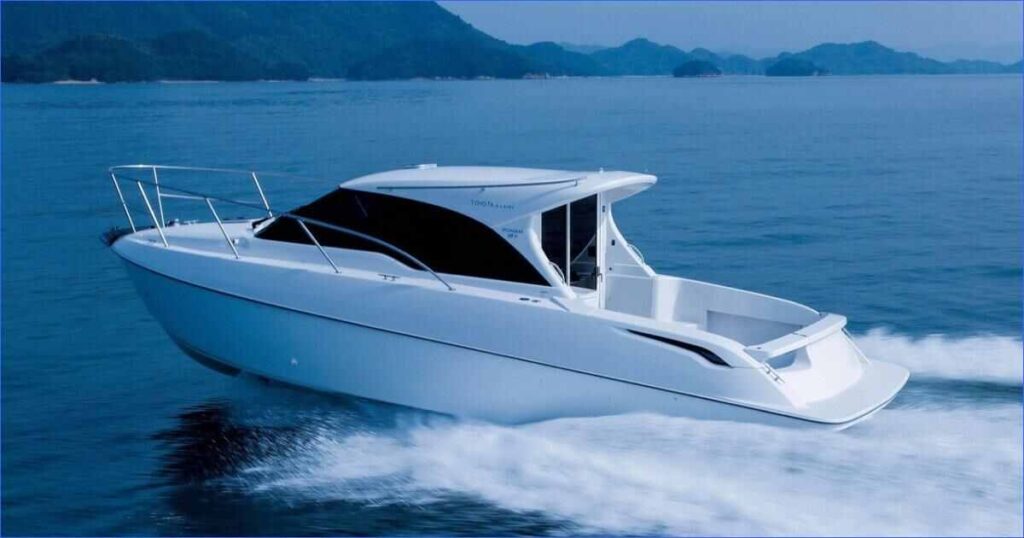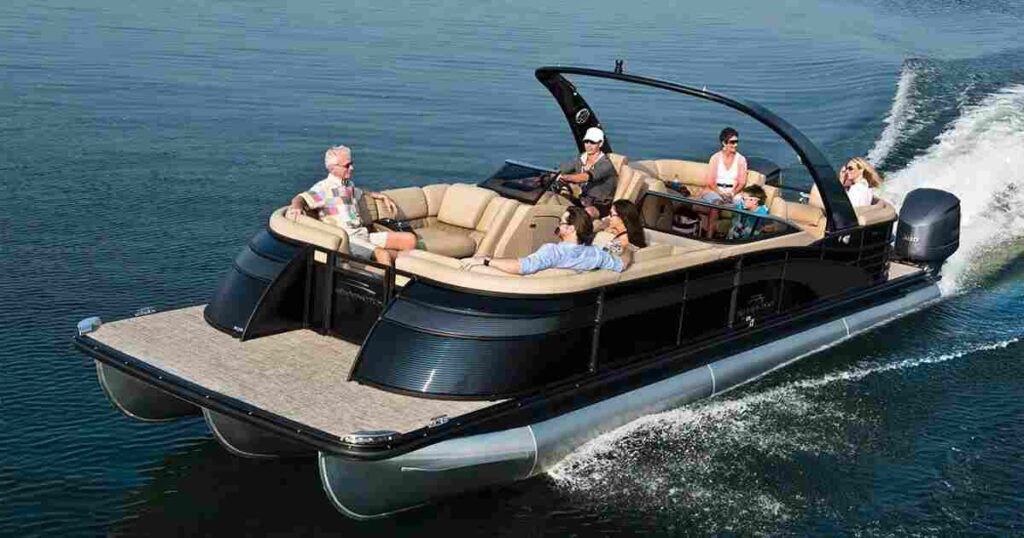Boats weigh can be anywhere from a few hundred pounds to several thousand, depending on their size and type. Small fishing boats are lightweight, while large yachts are much heavier. Knowing a boat’s weight is important for towing and storage.
For new boaters, understanding the weight helps in planning trips and choosing the right equipment. It also affects how the boat handles and the fuel you will need. In this article, we’ll discuss different boat types and their weights.
How much do boat weigh on average?
When it comes to boat weight, there’s no one-size-fits-all answer. The average weight of a boat can vary dramatically, from as little as 20 pounds for a lightweight kayak to over 100,000 pounds for a massive yacht. This wide range reflects the incredible diversity in boat sizes and types available to enthusiasts across the USA.
Factors like construction materials, design, and intended use all play a role in determining a boat’s weight. For instance, aluminum boats tend to be lighter than their fiberglass counterparts of similar size. Similarly, sailboats often weigh less than motorized vessels of comparable length due to their lack of heavy engines and fuel tanks.
Understanding average boat weights can be helpful, but it’s important to remember that these figures can be misleading. A 20-foot fiberglass boat designed for fishing might weigh significantly more than a 20-foot aluminum boat built for speed. When considering weight It’s important to look at specific boat types and models.
Read also: Things That Are 7 Inches Long
How much do different boat weigh?

Now that we’ve discussed our toes into the waters of average boat weights, let’s go deeper into specific types. From nimble skiffs to luxurious cabin cruisers, each boat type has its own weight range and unique characteristics. Understanding these differences can help you choose the perfect vessel for your needs, whether you’re planning weekend fishing trips or dreaming of increasing ocean voyages.
Skiffs
Skiffs are the featherweights of the boating world. These versatile little boats are typically under 20 feet in length. They are designed for shallow waters and quick maneuverability. A skiff’s weight range usually falls between 300 to 900 pounds, making them relatively easy to transport and launch. Factors like construction material (fiberglass or aluminum) and the presence of a motor can influence the final weight.
Aluminum Fishing Boats
Aluminum boats are a popular boat choice for anglers across the USA, thanks to their durability and lightweight nature. This Boat can fall 16 to 20 feet long. These fishing-focused vessels usually weigh between 375 to 900 pounds. The lightweight design of aluminum boats makes them fuel-efficient and easy to tow, perfect for weekend warriors who want to explore different lakes and rivers.
Fiberglass Fishing Boats
While heavier than their aluminum cousins, fiberglass boats offer improved stability and a smoother ride in choppy waters. A typical fiberglass fishing boat in the 16 to 20-foot range can weigh anywhere from 1,700 to 2,900 pounds. This weight has benefits like better durability and the ability to incorporate more complex hull designs for improved performance.
Day Sailboats
Smaller sailboats, often called day sailboats, are perfect for those who love the wind in their sails but don’t need overnight accommodations. These boats, usually ranging from 14 to 20 feet in length, typically weigh between 400 to 800 pounds. These sailboats are designed for bays, lakes, and other calm waters. Their lightweight design makes them easy to trailer and launch, ideal for sailors who want to explore different bodies of water.
Mid-Sized Sailboats
Look at their size, mid-sized sailboats offer more comfort and the ability to stay out on the water for extended periods. These vessels, typically between 20 to 32 feet long, can weigh anywhere from 4,000 to 8,000 pounds. The wide weight range reflects the variety of designs and amenities available, from basic weekenders to more luxurious models with full galleys and sleeping quarters.
Bowrider Boats
Bowriders are a popular boat choice for families and groups who love day journeys and water sports. These versatile vessels, often ranging from 16 to 25 feet in length, typically weigh between 3,000 to 3,500 pounds. The weight can vary based on hull material, engine size, and onboard features. Bowriders beat a nice balance between performance and comfort, making them a favorite among recreational boaters.
Pontoon Boats

In recent years, Pontoon boats have become increasingly popular, especially on lakes and rivers across the USA. These stable, spacious boats typically weigh around 5,000 pounds. This can vary based on size and features. The unique design of pontoon boats, with their multiple hulls, allows for a large deck space without the weight of a traditional monohull boat. This makes them ideal for entertaining and relaxed cruising.
Cabin Cruisers
For those who dream of extended trips on the water, cabin cruisers offer the comforts of home in a floating package. These larger boats, usually measuring between 25 to 45 feet, can weigh anywhere from 12,000 to 16,000 pounds or more. The real weight of cabin cruisers reflects their extensive comfort including sleeping quarters, a galley, and a head (bathroom). While heavier, these boats provide a luxurious and comfortable experience for long stays on the water.
Bass Boats
Bass boats are specialized fishing vessels, designed specifically for freshwater angling. These sleek boats typically weigh around 1,700 pounds, this can vary based on size and features. The relatively lightweight bass boats, combined with their powerful engines, allow for quick acceleration and maneuverability – crucial features when chasing that prize catch.
Read also: Things That Are 50 Pounds Long
Speedboats
Speedboats are hard to beat when it comes to pure adrenaline on the water. These high-performance vessels, built for speed and excitement, typically weigh around 8,000 pounds. The weight of a speedboat is a careful balance between strength (to withstand high speeds) and lightness (to achieve those speeds). Materials like fiberglass and carbon fiber are often used to keep weight down while maintaining structural integrity.
Wake Board, or Ski Boat
Wake boats are specially designed for water sports enthusiasts. These boats typically measure about 20 feet in length and can weigh between 3,000 to 5,000 pounds. The weight of a wake boat is important to its performance, as it affects the size and shape of the wake produced. Many wake boats use ballast systems to add or remove weight as needed, allowing the driver to customize the wake for different activities like wakeboarding or water skiing.
Deck Boats
Deck boats strike a perfect balance by offering the roomy comfort of a pontoon boat along with the speed and agility of a bowrider. These versatile vessels typically weigh between 3,000 to 5,000 pounds, depending on their size and features. The weight of a deck boat is distributed to provide a stable platform for activities, while still allowing for decent speed and maneuverability. This makes them a popular boat choice for families who enjoy a variety of water activities.
Lifeboats
Lifeboats are an important type of vessel worth mentioning. These boats, designed to save lives in emergencies, usually weigh around 3,500 pounds. The weight of a lifeboat is carefully calculated to ensure it can carry its maximum capacity of passengers while still being manageable to launch an activity in rough conditions.
Convertible Fishing Boats
Convertible fishing boats, also known as sportfishing yachts, are the heavyweights of the fishing world. These large, ocean-going vessels can weigh up to 47,000 pounds or more. The substantial weight of convertible fishing boats reflects their size (often 35 feet or longer) and extensive features. It can include sleeping quarters, full galleys, and powerful engines for offshore fishing expeditions.
Catamaran Boats
Catamarans, with their distinctive twin-hull design, offer a unique boating experience. The weight of a catamaran can vary significantly based on size and purpose. A small catamaran might weigh around 1,500 pounds, while a larger model could tip the scales at 4,000 pounds or more. The dual-hull design of catamarans allows for a lighter. Overall weight compared to monohull boats of similar size, contributing to their efficiency and stability.
Center Console Boats
Center console boats are versatile choices popular for both fishing and general recreation. These boats typically weigh between 5,000 to 6,300 pounds, though larger models can weigh significantly more. The weight of a center console boat is influenced by factors hull material, engine size, and onboard features. Their design allows for easy movement around the entire boat, making them ideal for activities like fishing or diving.
Trawler Boats
Trawlers are designed for long-range sailing, offering a comfortable and fuel-efficient way to travel long distances by water. These boats can weigh around 26,000 pounds, though this can vary greatly depending on the size and features of the vessel. The substantial weight of trawlers contributes to their stability in rough seas and ability to carry large amounts of fuel and supplies for extended voyages.
Kayaks
At the lightest end of the boat spectrum, we find kayaks. These active vessels typically weigh between 20 to 80 pounds, making them easy to transport and maneuver. Its weight can vary based on its material (plastic, fiberglass, or composite) and intended use (recreational, touring, or fishing). Despite their lightweight, kayaks are surprisingly versatile and can be used in water conditions, from calm lakes to ocean surf.
Frequently Asked Questions
What factors affect a boat weigh?
Material, size, engine type, and additional features like fuel tanks impact a boat weigh.
Can I tow a 22-foot boat with an SUV?
Yes, most SUVs can tow a 22-foot boat, but it’s important to check your vehicle’s towing capacity.
Do bigger boats use more fuel?
Yes, larger boats use more fuel due to their weight and engine size.
Is boat weight important for performance?
Yes, a boat’s weight affects its speed, stability, and how it handles the water.
How much does a kayak weigh?
A kayak typically weighs between 20 to 80 pounds, depending on its material and design.
How much does a 22-foot boat weigh?
A 22-foot boat typically weighs between 2,500 to 3,500 pounds, depending on the material and type.
How much does a boat weigh in tons?
Boats can weigh anywhere from 1 to 50 tons, depending on size and design, with larger yachts weighing significantly more.
How much does a 17-foot boat weigh?
A 17-foot boat usually weighs around 1,500 to 2,000 pounds, depending on the type and material.
How much does a 24-foot boat weigh?
A 24-foot boat typically weighs between 4,500 to 6,000 pounds, based on its construction and features.
Conclusion
The weight of a boat is a crucial factor that impacts everything from performance to practicality. Whether you’re drawn to the lightweight agility of a kayak or the luxurious heft of a cabin cruiser, understanding boat weights can help you make an informed decision.
Remember, the perfect boat for you is the one that balances your needs for performance, comfort, and ease of use. So, armed with this knowledge about boat weights, you’re now ready to find your ideal vessel and set sail on your next aquatic adventure!

I’m Jean Scout, and I’m thrilled to be the person behind all the measurements and dimensions you’ll find here! With a love for numbers and practical solutions, I’ve made it my mission to break down complex conversions into simple, bite-sized pieces. Whether you’re figuring out room sizes or tackling tricky conversions, I’m here to make it easy and fun. Let’s get measuring together!

